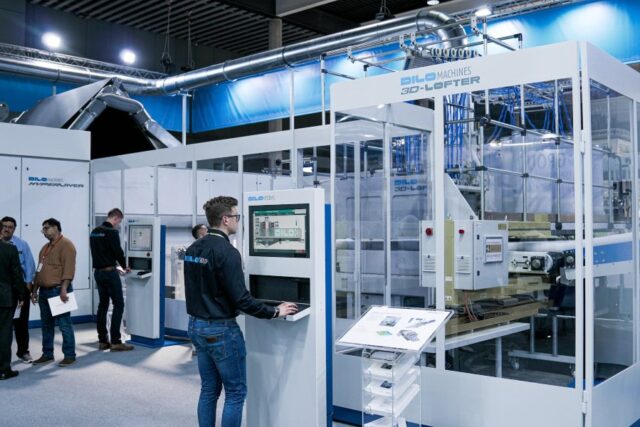Production efficiency is essential in today’s fiercely competitive corporate environment. Optimizing your manufacturing process is critical if you want to stay competitive and satisfy customers’ increasing needs. Whether you’re a small workshop or a large industrial facility, streamlining operations can significantly impact your bottom line. In this comprehensive guide, we’ll explore the strategies and tools to boost your manufacturing efficiency. From production schedule software to lean manufacturing principles, this article will provide you with a roadmap to enhance productivity and reduce waste.
Embrace Lean Manufacturing Principles
Lean manufacturing is a philosophy that has revolutionized the way companies approach production. It centers around minimizing waste in all its forms – whether it’s overproduction, waiting times, or defects in the final product. By implementing lean principles, you can reduce costs, enhance product quality, and improve overall efficiency.
One fundamental concept of lean manufacturing is just-in-time (JIT) production. JIT ensures that each component arrives precisely when it’s needed for assembly, minimizing inventory costs and wastage. Another key principle is continuous improvement, which encourages employees to find better ways of doing their tasks. By fostering a culture of constant refinement, you can steadily enhance your manufacturing efficiency.
Optimize Your Master Production Schedule
The master production schedule (MPS) is the heartbeat of any manufacturing operation. It serves as the overarching plan that coordinates all production activities. To optimize your manufacturing process, invest in master production schedule software, which can help you manage and refine your MPS effectively. This software allows you to create and adjust production schedules in real-time, taking into account various factors like material availability, order prioritization, and machine capacity. With master production schedule software, you can adapt quickly to changes in demand or supply chain disruptions, ensuring that your manufacturing process remains efficient and adaptable.
Streamline Your Material Handling
Efficient material handling is a crucial aspect of manufacturing. Inefficient material flow can lead to delays, excess handling, and higher labor costs. To streamline your material handling, consider implementing automated systems, such as conveyors and robotics, that can transport materials seamlessly from one workstation to another.
Additionally, using well-organized storage systems like vertical carousels and automated storage and retrieval systems (AS/RS) can reduce the time employees spend searching for materials, thus improving productivity. Remember, every second saved in material handling contributes to the overall efficiency of your manufacturing process.
Invest in Employee Training and Development
Your workforce is a critical factor in manufacturing efficiency. Well-trained and motivated employees can significantly impact your overall operations. Investing in ongoing training and development programs not only improves the skills of your employees but also empowers them to suggest and implement process improvements.
Empowering your workforce to identify bottlenecks, suggest solutions, and continuously refine their processes can lead to substantial efficiency gains. Incentivize and reward employees for their innovative ideas, fostering a culture of engagement and improvement.
Implement Total Quality Management (TQM)
Quality is not only about the final product but also about the processes that lead to it. Total Quality Management (TQM) is a holistic approach that focuses on continually improving all aspects of your organization. By embedding quality into your manufacturing process, you can minimize defects, rework, and customer complaints.
TQM principles include process mapping, root cause analysis, and the use of statistical process control. These methodologies help identify the root causes of quality issues, enabling you to take corrective actions. By adhering to TQM principles, you’ll reduce waste, boost efficiency, and enhance your product quality.
Monitor and Analyze Key Performance Indicators (KPIs)
In manufacturing, what gets measured gets managed. To increase efficiency, you must have a clear understanding of your key performance indicators (KPIs). These metrics, such as production output, lead times, and machine uptime, can provide valuable insights into your operations.
Utilize data collection systems and analytics tools to monitor and analyze KPIs in real-time. By doing so, you can quickly identify areas where your manufacturing process falls short of optimal performance and take prompt corrective actions. Regularly reviewing and acting upon KPI data can lead to significant efficiency gains.
Implement Predictive Maintenance
Implementing predictive maintenance is a game-changer for manufacturing operations. This proactive approach utilizes cutting-edge technology, such as sensors and data analytics, to monitor the condition of machinery and equipment in real time. By collecting and analyzing performance data, predictive maintenance can accurately predict when a component is likely to fail, allowing maintenance teams to intervene before a costly breakdown occurs. This means that manufacturers can schedule maintenance activities during planned downtime, rather than reacting to unexpected failures, minimizing production disruptions and maximizing equipment uptime.
In essence, predictive maintenance not only extends the lifespan of machinery and reduces the need for costly emergency repairs but also enhances the overall efficiency of a manufacturing process. It’s a shift from a reactive mindset to a proactive one, enabling manufacturers to minimize operational disruptions, reduce maintenance costs, and ultimately improve the bottom line. This approach has become increasingly accessible and affordable with advances in technology, making it an essential tool for any manufacturing facility looking to optimize its operations.
Embrace Sustainable Manufacturing Practices
Embracing sustainable manufacturing practices is no longer just a choice; it’s necessary in today’s environmentally conscious world. Sustainable practices not only benefit the planet by reducing environmental impact but also bring significant advantages to manufacturing operations. By incorporating energy-efficient technologies, minimizing waste, and implementing recycling programs, manufacturers can not only reduce their carbon footprint but also cut operational costs. Sustainable manufacturing also aligns well with lean principles, as it often involves streamlining processes to use fewer resources more efficiently. Moreover, it appeals to a growing market of eco-conscious consumers, enhancing brand image and marketability. By integrating sustainability into manufacturing, businesses can simultaneously boost efficiency, reduce environmental harm, and position themselves as responsible stewards of both their products and the planet.
Efficiency is the cornerstone of a successful manufacturing operation. By embracing lean principles, optimizing your master production schedule with specialized software, streamlining material handling, investing in employee development, implementing TQM, monitoring KPIs, practicing predictive maintenance, and embracing sustainability, you can unlock the full potential of your manufacturing process. With these strategies and tools at your disposal, you’ll not only reduce waste and cut costs but also position your manufacturing operation for long-term success in a highly competitive marketplace.














